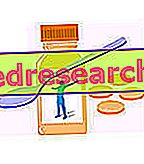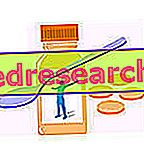
What is Revatio?
Revatio is a medicine that contains the active substance sildenafil. It is available as white round tablets (20 mg).
What is Revatio used for?
Revatio is used to treat adults with pulmonary arterial hypertension (PAH) in order to improve exercise capacity (ability to perform physical activity). PAH is a disease that involves an abnormally high pressure in the pulmonary arteries. Revatio is used in patients with class II or class III disease. The class indicates the severity of the disease: class II implies a slight limitation of physical activity, while class III implies a considerable limitation of physical activity. Revatio has been shown to be effective in treating PAH that does not depend on identified causes and PAH caused by a connective tissue disease.
Because the number of patients with PAH is low, the disease is considered "rare" and Revatio was designated an "orphan medicine" (a medicine used for rare diseases) on 12 December 2003.
The medicine can only be obtained with a prescription.
How is Revatio used?
Treatment with Revatio should only be started and monitored by a physician experienced in the treatment of PAH.
The recommended dose is 20 mg three times a day. The tablets should be taken approximately six to eight hours apart, with or without food. The same dose is used in patients with kidney or liver problems, which should only be decreased if it is not tolerated. Revatio can be used together with epoprostenol (another medicine used for PAH).
How does Revatio work?
PAH is a debilitating disease in which there is a strong constriction (constriction) of the blood vessels of the lungs, which causes very high pressure in the arteries that carry blood from the heart to the lungs. This pressure reduces the amount of oxygen that the blood brings to the lungs, making physical activity more difficult.
The active substance in Revatio, sildenafil, belongs to a group of medicines called "phosphodiesterase type 5 inhibitors" (PDE5), which block the enzyme PDE5. This enzyme is found in the blood vessels of the lungs and, when blocked, a substance called cyclic guanosine monophosphate (cGMP) cannot be degraded, which then remains in the blood vessels causing it to
relaxation and enlargement (vasodilation). In patients with PAH, sildenafil dilates the blood vessels in the lungs, which causes a drop in blood pressure and relieves symptoms.
What studies have been carried out on Revatio?
Three doses of Revatio (20, 40 and 80 mg three times a day) were compared with placebo (a dummy treatment) in one main study involving 277 patients with PAH, mostly class II or class III. The effects of adding Revatio or placebo to epoprostenol in 267 patients were also compared in one study. In this study the dose of Revatio was at the beginning of 20 mg three times a day, then it was increased to 40 mg, then to 80 mg at the fourth and eighth week.
In all the studies the main measure of effectiveness was the change in the distance patients could walk in 6 minutes after 12 weeks of treatment. This is a way to measure the change in exercise capacity.
What benefit has Revatio shown during the studies?
Revatio was more effective than placebo at improving exercise capacity. Before treatment, patients with class II disease were able to walk an average of 379 m in six minutes. After 12 weeks of treatment, this distance was increased by 49 m more in patients treated with Revatio 20 mg than in those treated with placebo. Patients with class III disease at the start of the study were able to walk on average 325 m. After 12 weeks this distance was increased by 45 m more in patients treated with Revatio 20 mg compared to those treated with placebo. As the three doses of Revatio showed similar effects, it was decided to give the patients the lowest dose (20 mg three times a day).
Revatio was more effective than placebo when added to epoprostenol, as the distances traveled increased by 30.1 and 4.1 meters respectively after 16 weeks of treatment.
What is the risk associated with Revatio?
The most common side effects with Revatio (seen in more than 1 patient in 10) are headache, redness of the skin, dyspepsia (heartburn), diarrhea and pain in the limbs. For the full list of all side effects reported with Revatio, see the Package Leaflet.
Revatio should not be used in people who may be hypersensitive (allergic) to sildenafil or other ingredients in the medicine. It must not be taken by people who have had an episode of vision loss due to problems with blood flow to the optic nerve, a condition called non-arteritic anterior ischemic optic neuropathy (NAION). Revatio should not be taken with nitrates (a group of medicines used to treat angina) or with medicines that may affect the way Revatio is decomposed in the body, such as ketoconazole or itraconazole (antifungal drugs) and ritonavir (used to treat HIV infection). Since Revatio has not been studied in patients with severe liver problems or severe hypotension (very low blood pressure) or who have recently had a stroke or myocardial infarction (heart attack), these patients should not take it.
Why has Revatio been approved?
The Committee for Medicinal Products for Human Use (CHMP) concluded that Revatio offers an alternative treatment option for PAH. The committee decided that Revatio's benefits are greater than its risks for the treatment of PAH with functional class II and III of the WHO, to improve the ability to exercise. The CHMP recommended that Revatio be given marketing authorization.
Initially Revatio was authorized in "exceptional circumstances" because, given that the disease is rare, the information available was limited at the time of approval. As the manufacturing company provided the additional information requested, the condition "in exceptional circumstances" was removed on 25 August 2008.
What measures are being taken to ensure the safe use of Revatio?
Before the medicine is distributed in each Member State, the manufacturer will send a letter to healthcare professionals specifying that the medicine should not be taken concurrently with nitrates.
More information on Revatio
On 28 October 2005, the European Commission granted Revitio a marketing authorization valid throughout the European Union to Pfizer Limited.
For a summary of the opinion of the Committee for Orphan Medicinal Products on Revatio, click here.
For the full EPAR of Revatio, click here.
Last update of this summary: 06-2009.



